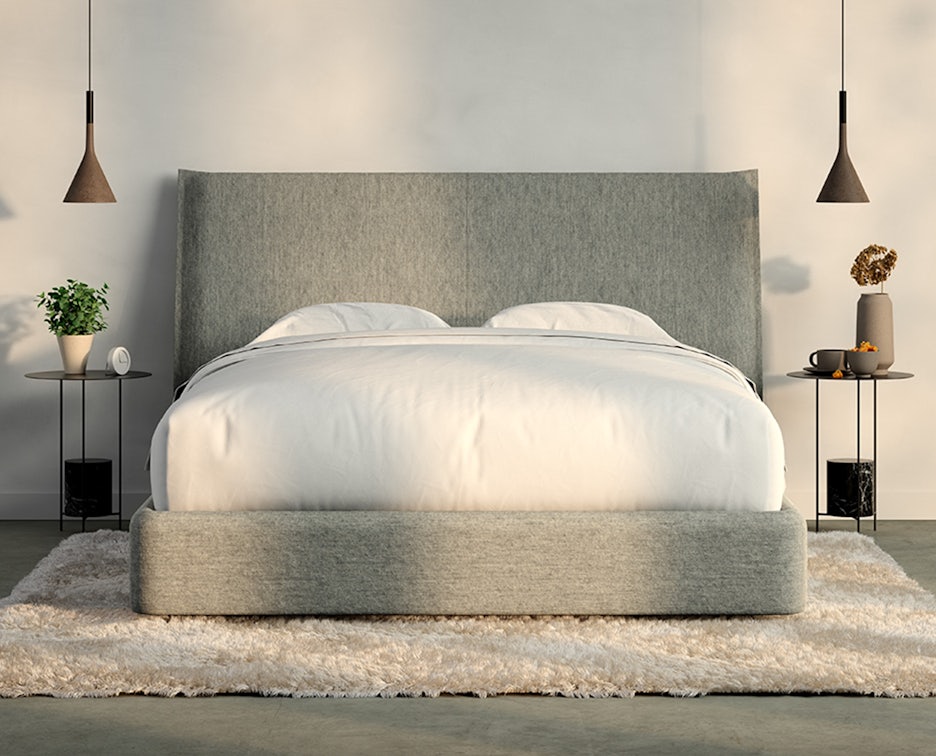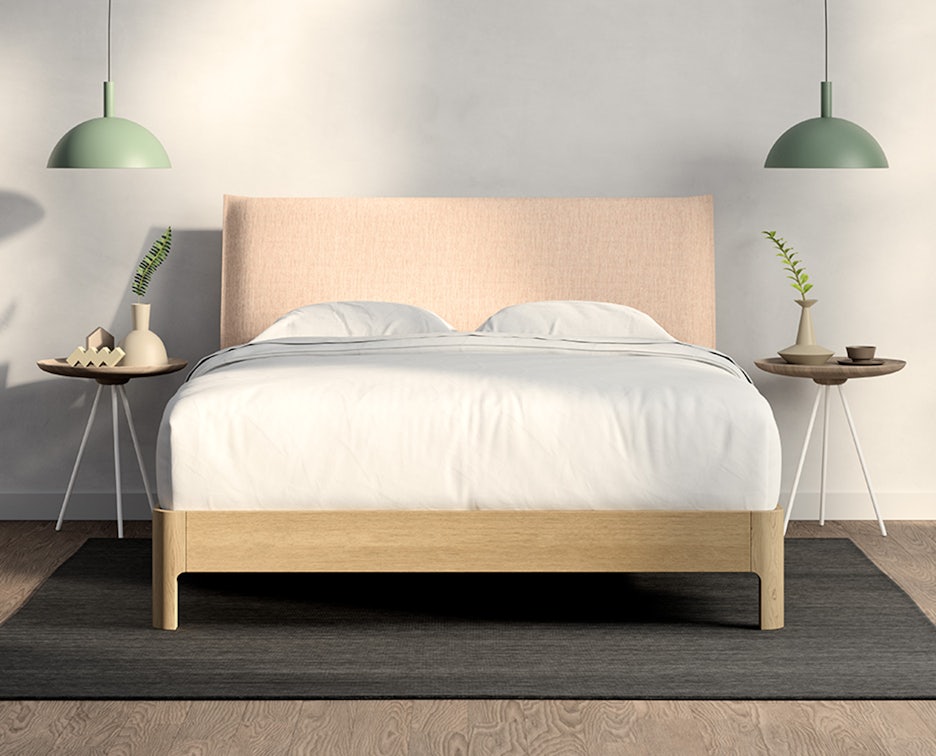
10 of the Best Plants
for the Bedroom
Bedroom plants can do more than just make your shelves look brighter. They can also boost your mood, enhance your creativity, reduce your stress levels, increase your productivity, naturally filter air pollutants, and much more.
Many of us don’t realize how important air quality is. Oftentimes the insulation, paint, and furniture in our homes can pollute our indoor air with toxins like formaldehyde and benzene. To help purify the air in your home, consider adding plants. Plants can absorb harmful gases through the pores in their leaves, filtering and cleaning the air you breathe every day.
Not only do bedroom plants have many health benefits, but they also add a nice touch of decor and bright energy to any indoor space. If you’re looking to add some greenery to your room, below are 10 of the best plants to keep in the bedroom.
Snake Plant

Also known as Mother-In-Law’s tongue, this insanely low-maintenance plant is an optimal choice for the bedroom because not only does it claim a spot on NASA’s list of the top 10 air-purifying plants, but it also is one of few houseplants that converts carbon dioxide into oxygen at night (something most houseplants only do during the day).
Bedroom Benefit: Filters indoor air during the day and night
Care Tip: Bright indirect light; water occasionally
Heart Leaf Philodendron

Among NASA’s top 10 list is the Philodendron which is a popular houseplant because it’s almost impossible to kill. This trailing plant’s heart-shaped leaves come in a variety of visually appealing variations and are particularly effective at absorbing formaldehyde. However, keep out of reach of pets and children because this plant is toxic when eaten.
Bedroom Benefit: Absorbs formaldehyde from the air
Care Tip: Moderate to bright light; water occasionally
English Ivy

Another trailing beauty that is high up on NASA’s list, English Ivy is extremely effective at absorbing formaldehyde, benzene, xylene, and toluene. Not only does English Ivy help rid our air of toxins, but research shows that it may be able to clear air of mold and animal feces as well as improve allergy symptoms.
Bedroom Benefit: Rids indoor air of toxins
Care Tip: Moderate light; water regularly
Golden Pothos

Similar in aesthetic to the heart leaf philodendron, the trailing pothos plant is effective at filtering out formaldehyde, carbon monoxide, and benzene and is extremely easy to care for and grow. It has been nicknamed ‘the cubicle plant’ because of how tolerant it is.
Bedroom Benefit: Purifies indoor air of toxins and helps eliminate odors
Care Tip: Moderate light; water regularly
Spider Plant

Perfect for a hanging planter, and easy to propagate; this plant is effective at fighting a variety of pollutants such as benzene, formaldehyde, carbon monoxide, and xylene. Keep these plants in bright to moderate indirect sunlight and water occasionally during initial growth. Once you’ve had the plant for about a year, water moderately.
Bedroom Benefit: Purifies indoor air by removing harmful chemicals
Care Tip: Moderate to bright light; water occasionally
Rubber Plant

This low-maintenance beauty with its striking forest green leaves is a powerful toxin eliminator and air purifier. The abundant leaves of this plant draw in large amounts of contaminants, making it excellent at cleaning indoor air. Allow these plants to dry between waterings and keep in moderate to low light.
Bedroom Benefit: Improve indoor air quality by absorbing airborne chemicals
Care Tip: Moderate to low light; water occasionally
Gardenia

The Gardenia is a little more high maintenance than the other plants on our list, but the extra care needed will definitely be worth your while. These plants bloom gorgeous scented blossoms that are a popular choice for the bedroom. Studies have shown that these plants may help you relieve anxiety and achieve better quality sleep. Make sure to place these plants in bright indirect sunlight and keep the soil continuously moist.
Bedroom Benefit: Help relieve anxiety and promote sleep
Care Tip: Bright indirect light; water weekly
Peace Lily

Peace Lilies bloom beautiful white flowers that are perfect for indoors, because they are known to clean the air of formaldehyde, benzene, acetone, alcohols, and trichloroethylene. These plants are poisonous so make sure to place somewhere that is out of reach for children and pets. To care for a Peace Lily, keep the soil moist and place it in an area of your home that gets moderate to bright indirect sunlight.
Bedroom Benefit: Purifies indoor air and can absorb acetone vapors
Care Tip: Moderate to bright indirect light; water regularly
Areca Palm

The Areca Palm is a tropical plant that adds a lush aesthetic to any indoor environment. These plants are boasted for their air purifying abilities that remove harmful toxins such as benzene, formaldehyde, and trichloroethylene. One study found that the Areca Palm is one of the best plants for removing carbon dioxide from the air. These palms grow best in bright indirect light when their soil is kept evenly moist.
Bedroom Benefit: Absorbs air pollutants — purifying indoor air
Care Tip: Bright indirect light; water regularly
Aloe Vera

Another plant listed on NASA’s top air-purifying plants, Aloe Vera releases oxygen at night making it perfect for your sleep environment. It is also one of the easiest plants to care for, because it can tolerate neglect — meaning you can go three weeks without watering it and it will be OK. These succulent plants are also known for their medicinal benefits; the juice from their leaves can be used for scrapes and burns when applied topically.
Bedroom Benefit: Filters indoor air during the day and night
Care Tip: Bright indirect light; water occasionally
Should You Keep Plants in the Bedroom?
Despite the positive benefits indoor plants provide, there are varying opinions when it comes to keeping plants in the bedroom: harmful vs. helpful. Some people believe it may be harmful because plants may respire as humans do, emitting carbon dioxide at night as a reverse response to photosynthesis, but humans and pets produce more CO2 than plants do.
Despite the scare stories, carbon dioxide is actually relatively harmless in small amounts. It is CO2’s cousin, carbon monoxide, that is extremely dangerous and perhaps where the idea that a few houseplants will cause you CO2 suffocation arises. Making the answer to this question a resounding yes; plants are great for the bedroom.
What Is the Best Plant to Have in Your Bedroom?
The best bedroom plant for you will depend on what you’re looking for in a plant. If you’re looking for a plant that filters indoor air even at night, consider adding the snake plant or aloe vera plant to your bedroom. If you’re looking for a plant that eliminates odors as well as purifies the air, go for the golden pothos. Compare the health benefits and care tips of each to choose which bedroom plant is best for you.
The Benefits of Bedroom Plants
One of the greatest benefits of keeping plants in the bedroom is that they have the ability to improve indoor air quality. Dry indoor air is blamed for a host of ailments like respiratory problems, sore throats, colds, and even breakouts. Indoor plants help to maintain, and in some cases increase, humidity levels by emitting water vapor during transpiration. And in addition to emitting oxygen and humidity — plants produce negative ions, similar to many fancy air-purifying machines. The negative ions attach themselves to, and effectively remove, any particles in the air such as dust, mold spores, bacteria, and allergens.
The presence of negative ions has also been shown to increase psychological health, productivity, and overall well-being. Some common houseplants even take it a step further in air quality control, naturally filtering indoor air pollutants like formaldehyde, trichloroethylene, xylene, toluene, and benzene.
One of the most under-appreciated benefits of houseplants is the calming effect they have — making them the perfect addition to your sleep space. Although there’s no scientific evidence that a houseplant can increase your quantity of sleep, they can turn your bedroom into a zen den to help you fall asleep faster and stay asleep longer. If you’re in the market for some new bedroom plants, make sure to match your potted plants to your bedding for an even sleeker sleep space.
Sources:
Almanac





